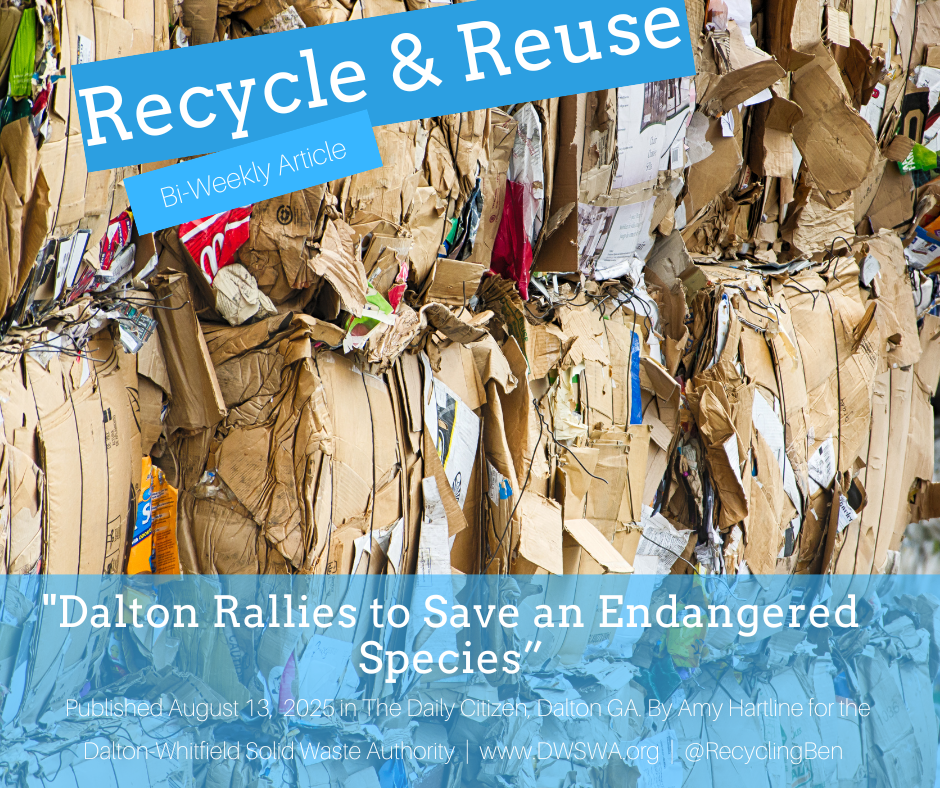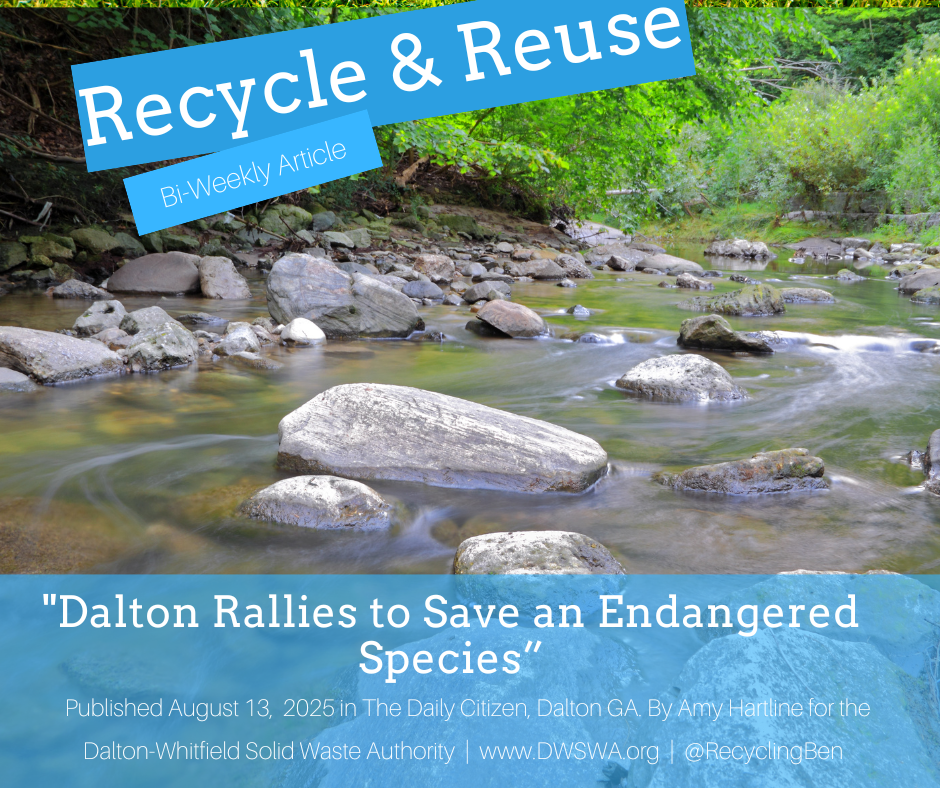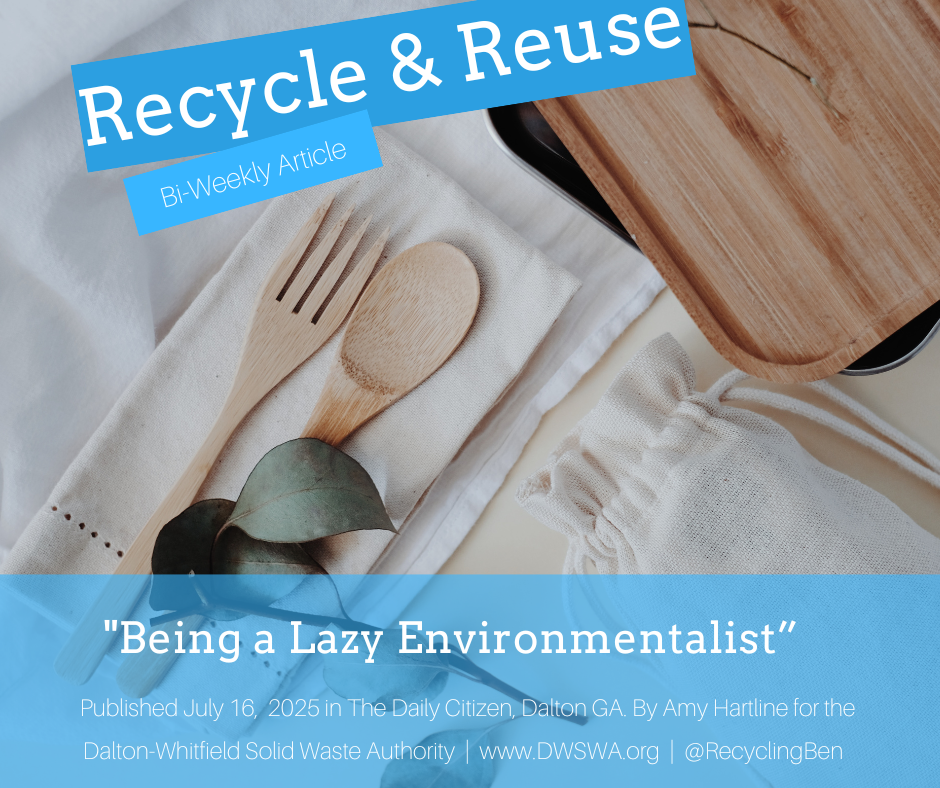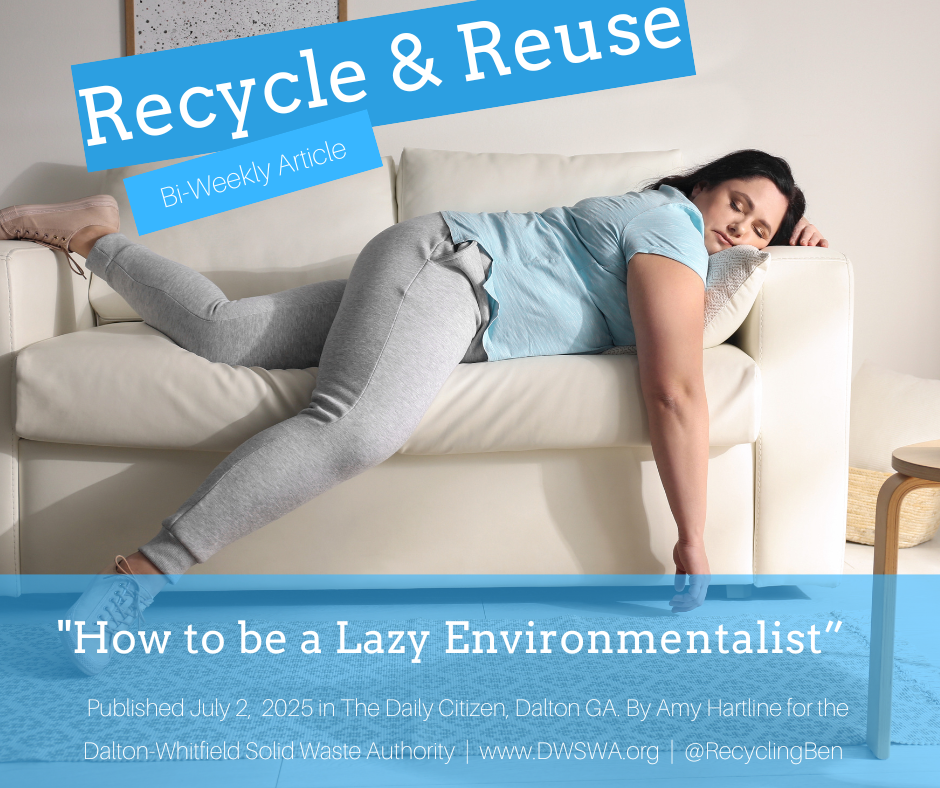Is Your Recycling Bin Contamination Free?
/Packaging material in cardboard boxes and laundry baskets mixed in with plastic bottles are contaminate that hurt the quality of recyclable products.
As much as our community recycles (two and a half million pounds last year in the city curbside program alone) there are some items that are getting to the recycling center that are not recyclable in our local programs. Products that are not recyclable, or are not recycled correctly, are actually contaminants that hurt the other products that are recyclable. Could these contaminants be coming from your recycling bin? Is your bin contamination free?
When a contaminant arrives at the recycling center workers pull it out of the piles of recyclables so it can be properly disposed of. Besides a loss of time and efficiency, some contaminants also ruin the quality of other recyclables. This results in less recyclable materials getting to manufacturers in Georgia that need them to make new products. And, this means that some items that you believe are being recycled are not.
Paper is especially susceptible to contamination since it’s absorbent. A paper plate with food scraps, for example, should not be recycled. The grease and oils on the plate will degrade the quality of the paper and contaminate other paper making it all un-recyclable. A pizza box with cheese and grease should also not be recycled. If the lid of the pizza box is clean it can be separated from the greasy bottom, then recycled with other clean and dry paper.
Other contaminants that have been spotted at the recycling center are cardboard boxes with packaging materials like plastic film and expanded polystyrene blocks. While the cardboard is recyclable the other materials are removed and disposed of by workers at the recycling center. On occasion, cardboard boxes will have undesirable materials like leftover food from a store or restaurant. In this case, the entire box has to be discarded because it’s contaminated (not to mention it smells bad!).
The category of plastic can be challenging since there are so many different types and shapes of containers available. According to the City of Dalton curbside recycling instructions, residents should be recycling plastic bottles used for milk, juice, soap and soft drinks with the numbers 1 and 2. This has been expanded in recent years to include all plastic bottles, jugs, and jars found in a residential setting.
Even though the instructions on the blue bins say “plastic bottles” the recycling collection team still sees non-recyclable products like plastic clamshell trays for strawberries, yogurt cups, plastic egg cartons, and sometimes five-gallon buckets. Just because something is plastic it doesn’t mean that you can recycle it. The collection team has found dangerous items like used syringes and even dirty diapers in the bin. Neither one of those is shaped like a bottle, so please leave them out of the recycling bin.
In the county’s convenience centers residents can drop off plastic bottles, jugs, and jars – no need to look for a number. These sites offer a large roll-off bin for residents to deposit their plastic bottles. As much as residents recycle correctly the recycling center workers will still find large plastics, like old laundry baskets or flower pots, hidden among the bottles. Just like other contaminants these items are removed by workers and sent to the landfill for proper disposal.
Some plastic containers that residents mistakenly recycle are technically recyclable however they are simply not recyclable at the facilities available in our community. The local recycling center is not able to process a large variety of plastics at this time. However, by recycling plastic bottles, jugs, and jars residents are still recycling ninety-five percent of plastics in their home by weight. And, if you recycle the right kinds of plastics you’ll help get more plastics to the manufacturers that need them to make new products like other plastic containers, carpet, clothing, and more.
You can learn more about what to put in the bin by reading the guide on your blue bin, or looking it up online on the city of Dalton's website: www.dalton-ga.gov. Click on departments, then Public Works, and you’ll see a page called Recycling Instructions. On the web page you can watch videos, read the list of items accepted, and download a full-color PDF guide you can print to display at home. You can also call public works at 706-278-7077 or the recycling center at 706-278-5001 with questions.
For information about recycling in the county at one of four convenience centers with a recycling drop off area visit the Dalton-Whitfield Solid Waste Authority’s website: www.dwswa.org. On the Recycling 101 page, you’ll find a downloadable recycling guide, directions, and a list of acceptable items. For additional questions please call the main office at 706-277-2545 or the recycling center at 706-278-5001. For weekday recycling and eco-friendly living tips follow mascot Recycling Ben (@recyclingben) on your favorite social media site.
































